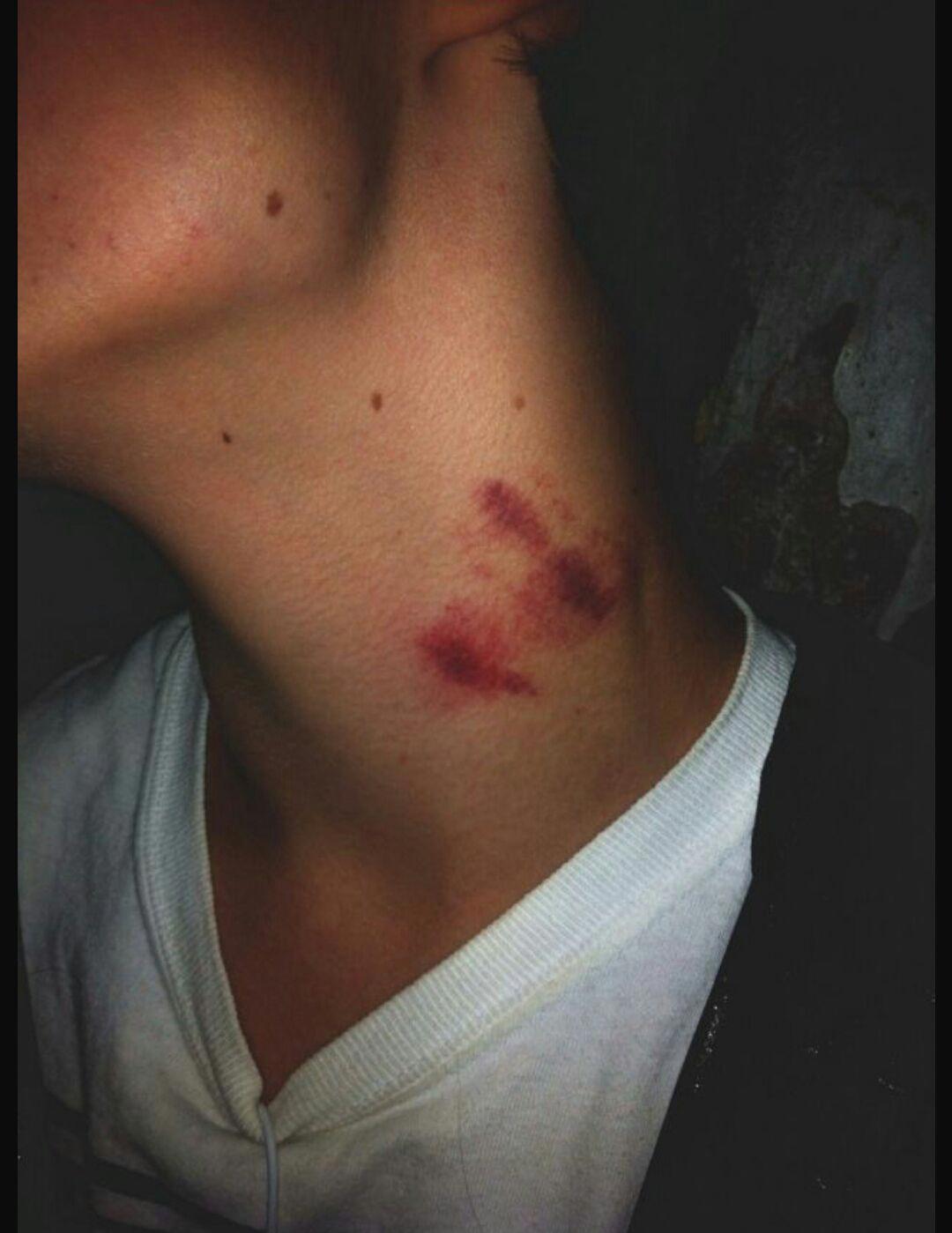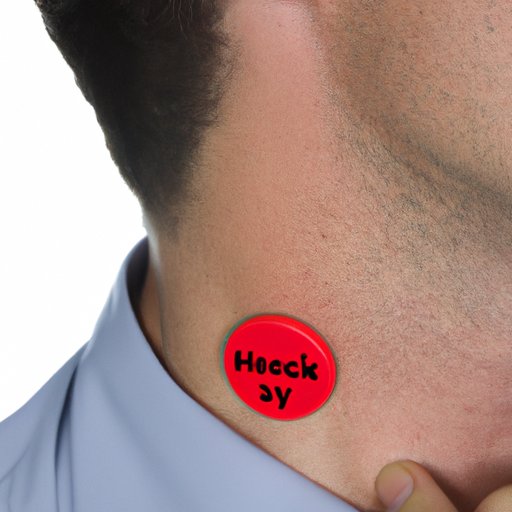Why Are Hickeys Bad? Understanding The Risks, Myths, And Implications
Hickeys, those red or purple love marks on the skin, might seem harmless, but there are several reasons why they can be considered bad for your health and social life. While they are often seen as a sign of affection or intimacy, they can lead to unintended consequences that go beyond aesthetics. If you've ever wondered why are hickeys bad, this article will provide a comprehensive explanation.
Hickeys are essentially bruises caused by the rupture of tiny blood vessels under the skin. While they are typically associated with romance, they can pose risks that extend beyond their temporary appearance. Understanding why are hickeys bad is crucial for anyone who wants to make informed decisions about their health and well-being.
This article will delve into the medical, social, and psychological implications of hickeys. We'll explore the potential health risks, the stigma attached to them, and how they can affect your personal and professional life. By the end, you'll have a clear understanding of why it's important to reconsider leaving or receiving hickeys.
Read also:Comprehensive Guide To Greenville News Obits Sc Understanding The Importance Of Local Obituaries
What Are Hickeys?
Hickeys, scientifically known as "hematoma," are bruises caused by the suction of the skin, leading to the rupture of capillaries beneath the surface. They typically appear as red, purple, or dark-colored marks on the skin and can last anywhere from a few days to a couple of weeks. While they are often associated with romantic relationships, they can have more serious implications than just being a temporary blemish.
Understanding the mechanism behind hickeys is essential to grasp why they might be harmful. The skin is a delicate organ, and excessive pressure or suction can damage the underlying blood vessels, leading to bruising and discoloration. This process can sometimes lead to complications, especially if the area is sensitive or prone to infections.
Why Are Hickeys Bad: Health Risks
1. Skin Damage and Scarring
One of the primary reasons why are hickeys bad is the potential for long-term skin damage. While most hickeys fade over time, excessive or repeated suction in the same area can lead to permanent scarring or discoloration. The skin may lose its elasticity, and the affected area might appear uneven or discolored even after the hickey has healed.
- Hickeys can cause hyperpigmentation in darker skin tones.
- Repeated bruising may lead to keloid scars in some individuals.
- Sensitive skin is more prone to damage and may take longer to heal.
2. Infection Risk
Another significant concern is the risk of infection. The skin acts as a natural barrier against bacteria and viruses, but when it is damaged, it becomes more vulnerable to infections. If the area is not properly cleaned and cared for, it can become a breeding ground for harmful microorganisms, leading to more serious health issues.
According to the National Institutes of Health, skin infections can range from mild to severe, and in some cases, may require medical intervention. It's important to be aware of the signs of infection, such as increased redness, swelling, or pus formation, and seek medical attention if necessary.
Social Implications: Why Are Hickeys Bad for Your Image?
3. Stigma and Perception
Hickeys are often associated with promiscuity or a lack of discretion, which can lead to negative social perceptions. In many cultures, displaying hickeys in public is considered inappropriate or unprofessional, and it can affect how others perceive you in both personal and professional settings.
Read also:Exploring The Legacy Of Green Bay A Comprehensive Guide To Legacy Com Green Bay
For example, in a workplace environment, visible hickeys might be seen as unprofessional or distracting, potentially impacting your career prospects. Even in social circles, they can lead to unwanted attention or gossip, which might not align with your personal values or goals.
4. Professional Consequences
In professional settings, appearances matter. Whether you're attending a job interview, a business meeting, or a networking event, having visible hickeys can detract from your credibility and professionalism. Employers and colleagues may perceive you as lacking maturity or responsibility, which can have long-term implications for your career.
According to a survey conducted by The Society for Human Resource Management, appearance plays a significant role in how employees are perceived in the workplace. While it's important to express yourself, it's equally important to consider how your appearance might be interpreted by others.
Psychological Effects: Why Are Hickeys Bad for Your Mental Health?
5. Self-Esteem and Confidence
Hickeys can have a negative impact on your self-esteem and confidence, especially if you feel self-conscious about their appearance. For some individuals, having visible hickeys can lead to anxiety or embarrassment, particularly in social or professional situations where they are expected to maintain a polished appearance.
Furthermore, the stigma attached to hickeys can exacerbate feelings of shame or guilt, especially if they are interpreted as a sign of promiscuity or irresponsibility. This can lead to a decline in mental well-being and affect your overall quality of life.
6. Relationship Dynamics
While hickeys are often seen as a sign of affection, they can also create tension or conflict in relationships. For example, if one partner feels uncomfortable with the idea of leaving or receiving hickeys, it can lead to misunderstandings or disagreements. Additionally, visible hickeys can raise questions or suspicions in relationships where trust or fidelity is a concern.
It's important to communicate openly with your partner about boundaries and expectations to ensure that both parties feel respected and valued in the relationship.
How to Prevent and Treat Hickeys
7. Prevention Techniques
If you're concerned about the risks associated with hickeys, there are several ways to prevent them from occurring. By being mindful of the pressure and suction applied to the skin, you can minimize the likelihood of causing damage or bruising.
- Avoid applying excessive pressure or suction to the skin.
- Use gentle touches instead of forceful movements.
- Consider alternative ways to express affection that don't involve physical marks.
8. Treatment Options
If you already have a hickey, there are several treatment options available to speed up the healing process and reduce its visibility. While time is the best healer, certain remedies can help minimize the appearance of the mark and promote faster recovery.
- Apply a cold compress to reduce swelling and discoloration.
- Use over-the-counter creams or ointments to promote healing.
- Massage the area gently to encourage blood flow and reduce bruising.
For more severe cases, you may want to consult a dermatologist for professional advice or treatment options.
Myths About Hickeys: Debunking Common Misconceptions
9. Myth #1: Hickeys Are Harmless
One of the most common misconceptions about hickeys is that they are harmless and will simply fade over time. While this may be true in some cases, the potential risks associated with hickeys, such as skin damage, infections, and social stigma, should not be overlooked. It's important to weigh the pros and cons before deciding whether to leave or receive hickeys.
10. Myth #2: Hickeys Are a Sign of Love
While hickeys are often associated with romantic relationships, they are not necessarily a sign of love or affection. In fact, they can sometimes create tension or conflict in relationships, especially if one partner feels uncomfortable with the idea of leaving or receiving hickeys. It's important to respect each other's boundaries and communicate openly about what feels right for both partners.
Conclusion: Why Are Hickeys Bad and What You Can Do
In conclusion, while hickeys may seem like a harmless way to express affection, they can have several negative implications for your health, social life, and mental well-being. From skin damage and infection risks to social stigma and relationship dynamics, it's important to consider the potential consequences before deciding whether to leave or receive hickeys.
We encourage you to take proactive steps to prevent or treat hickeys and to communicate openly with your partner about boundaries and expectations. By doing so, you can ensure that your relationships remain healthy, respectful, and mutually fulfilling.
Do you have any questions or thoughts about why are hickeys bad? Feel free to leave a comment below or share this article with your friends and family to spread awareness about the potential risks associated with hickeys.
Table of Contents
- What Are Hickeys?
- Why Are Hickeys Bad: Health Risks
- Social Implications: Why Are Hickeys Bad for Your Image?
- Psychological Effects: Why Are Hickeys Bad for Your Mental Health?
- How to Prevent and Treat Hickeys
- Myths About Hickeys: Debunking Common Misconceptions
- Conclusion: Why Are Hickeys Bad and What You Can Do


